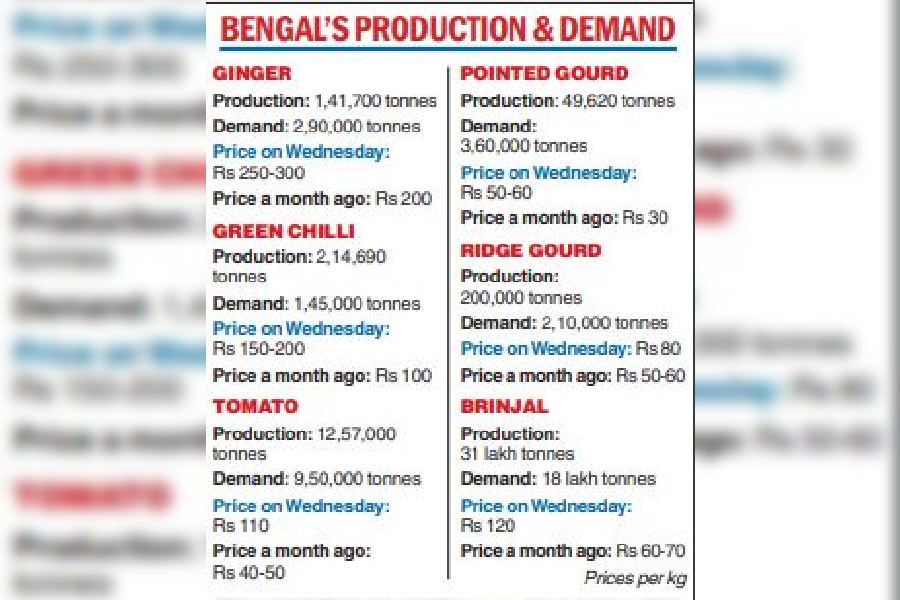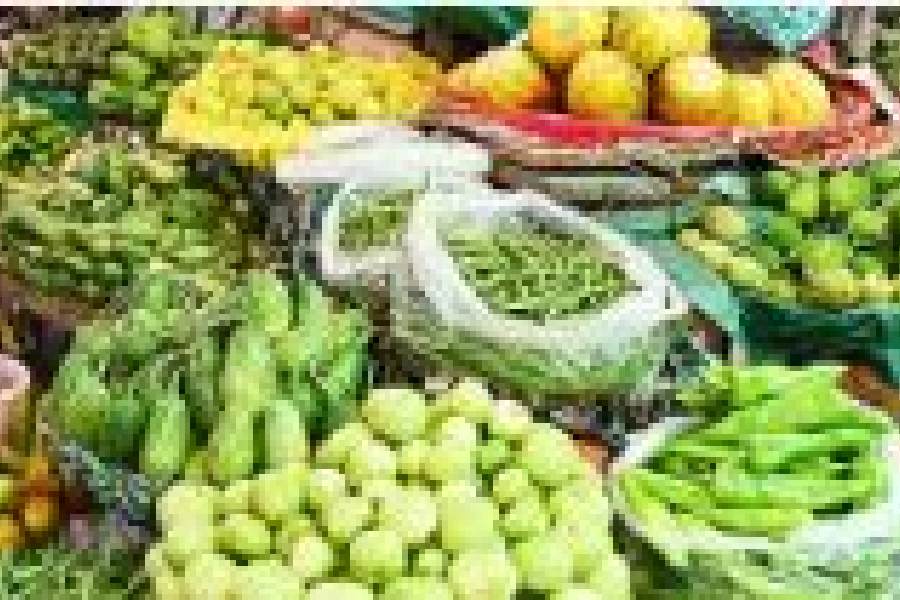A shortfall in production of vegetables in Bengal and erratic supply from other states have together resulted in the sharp rise in prices.
Bengal has to depend on supplies from other states for several vegetables — including green chillies, ginger and tomatoes — around this time of the year.
The production of homegrown vegetables took a beating because of the prolonged spell of extreme heat.
Bengal is one of the highest green chilli-producing states. Records with the agriculture department say the state produces 2,14,690 tonnes of green chilli annually, against a demand of 1,45,000 tonnes.
The bulk of the produce is seasonal and restricted to winter, when there is a surplus harvest in Kakdwip, Bhangar and Canning in South 24-Parganas and Beldanga in Murshidabad.
“This time, our domestic produce has been hit by prolonged spells of extreme heat, which caused the plants to wilt away. The shortfall is almost 80 per cent and the majority of the demand is being met from supplies from Katihar in Bihar,” said Kamal Dey, president of the West Bengal Vendors’ Association.
Same with tomatoes. Bengal produces over 12 lakh tonnes of tomatoes against a demand of around 9.5 lakh tonnes.
Like green chillies, the production is largely seasonal, restricted to winter, when the state witnesses a bumper crop.
“Tomatoes can’t be stored in cold storage beyond 28 days. In the last few months, the state was totally dependent on supplies from Karnataka and Himachal Pradesh. When the supply faltered, the prices shot up,” said an official in the state’s agri-marketing department.

For ginger, Bengal depends on Assam, Manipur, Meghalaya and Karnataka to make up for the deficit in domestic production. In Bengal, ginger is grown in Kalimpong, Darjeeling and some pockets in south Bengal.
“The annual demand-supply deficit for ginger is over 1 lakh tonne,” the official said.
Bengal produces enough gourds and brinjals for its own consumption, but excessive heat during summer affected the production of these two vegetables, resulting in a rise in their prices.
“The rain is likely to change the situation,” a farmer said.
